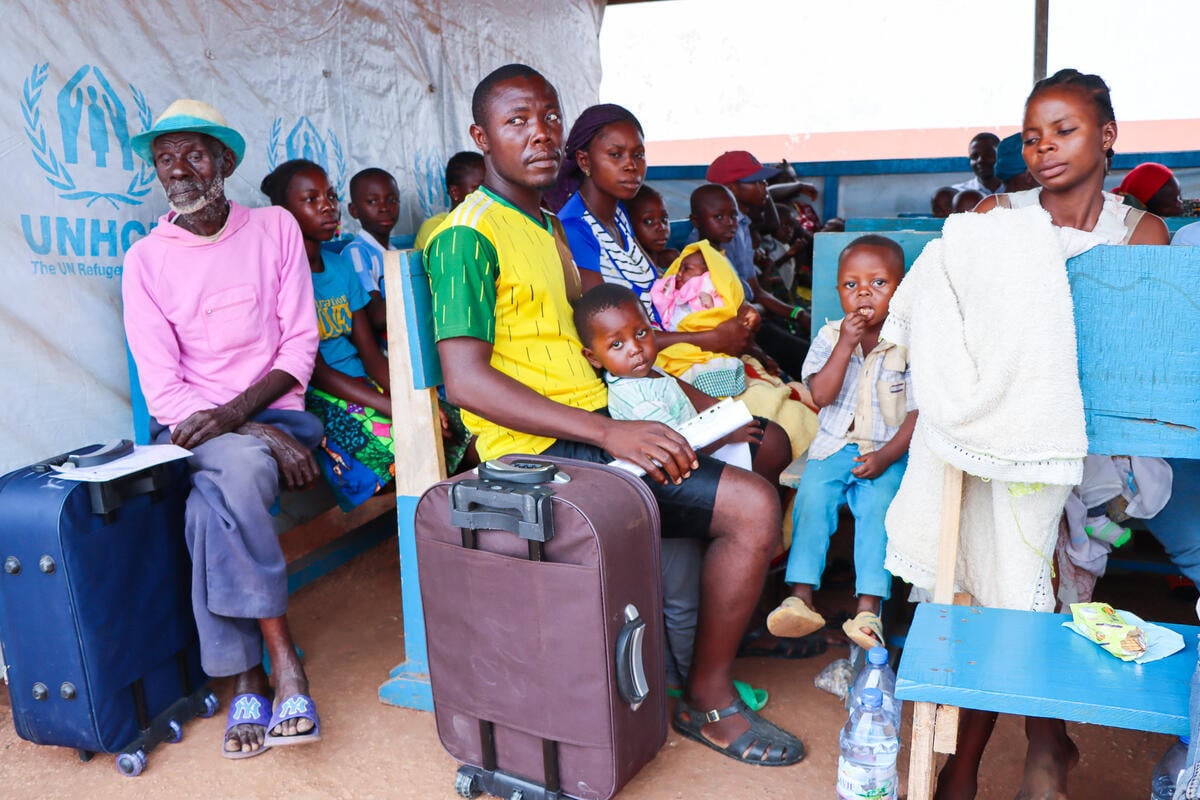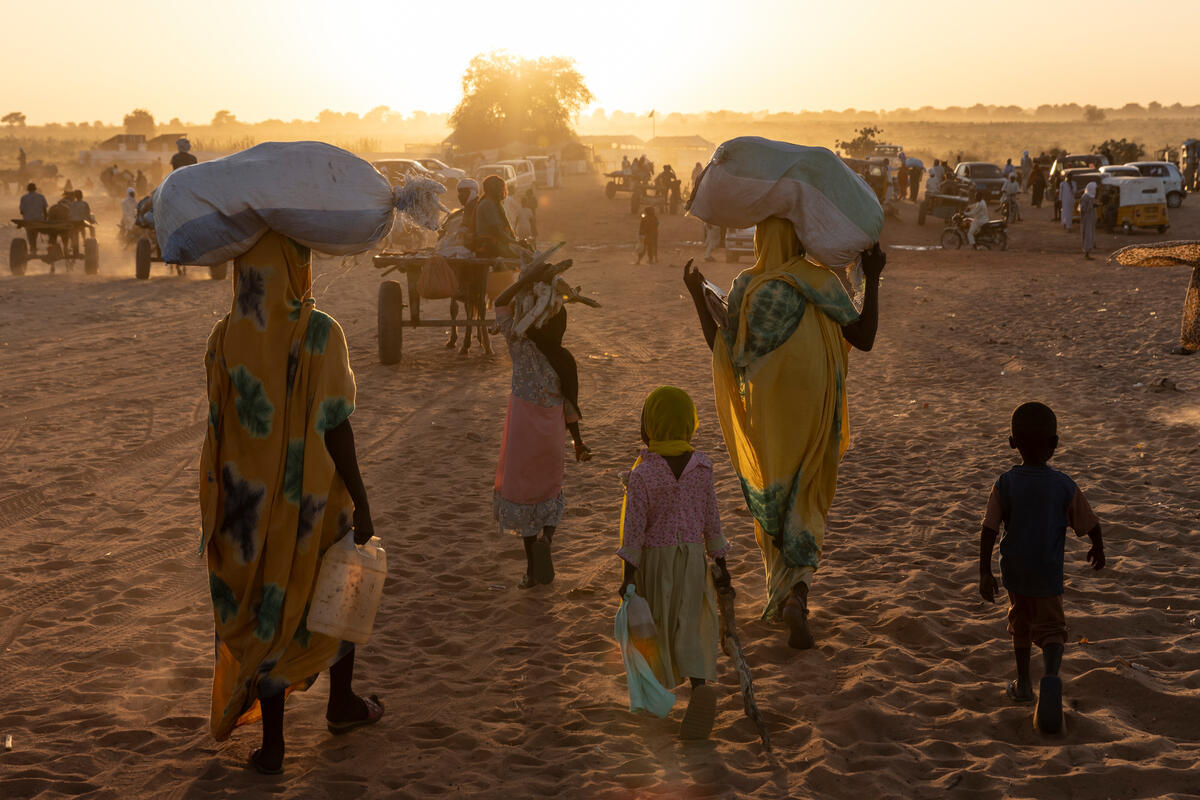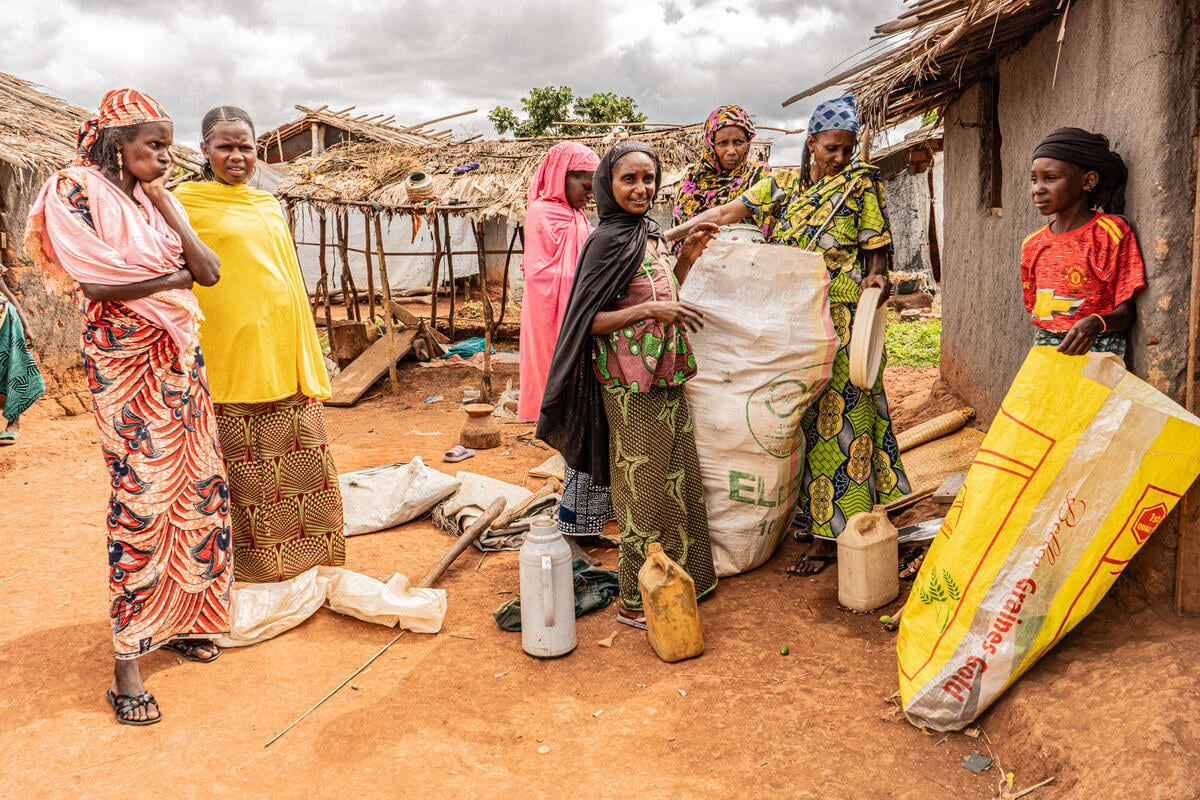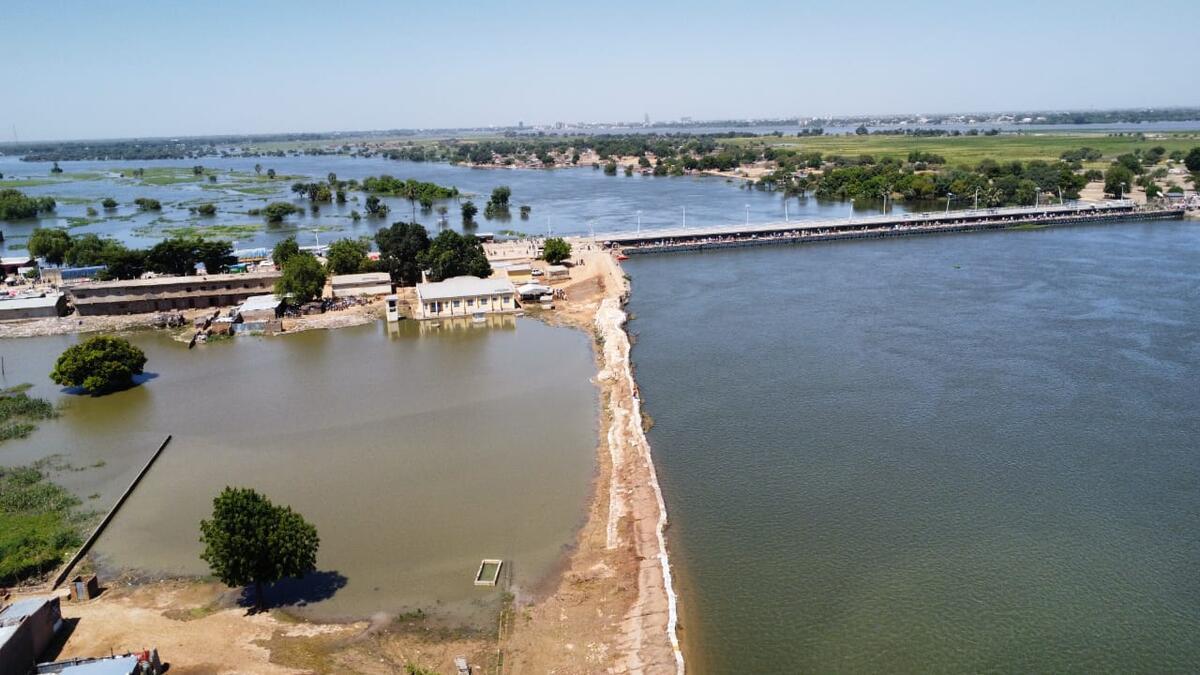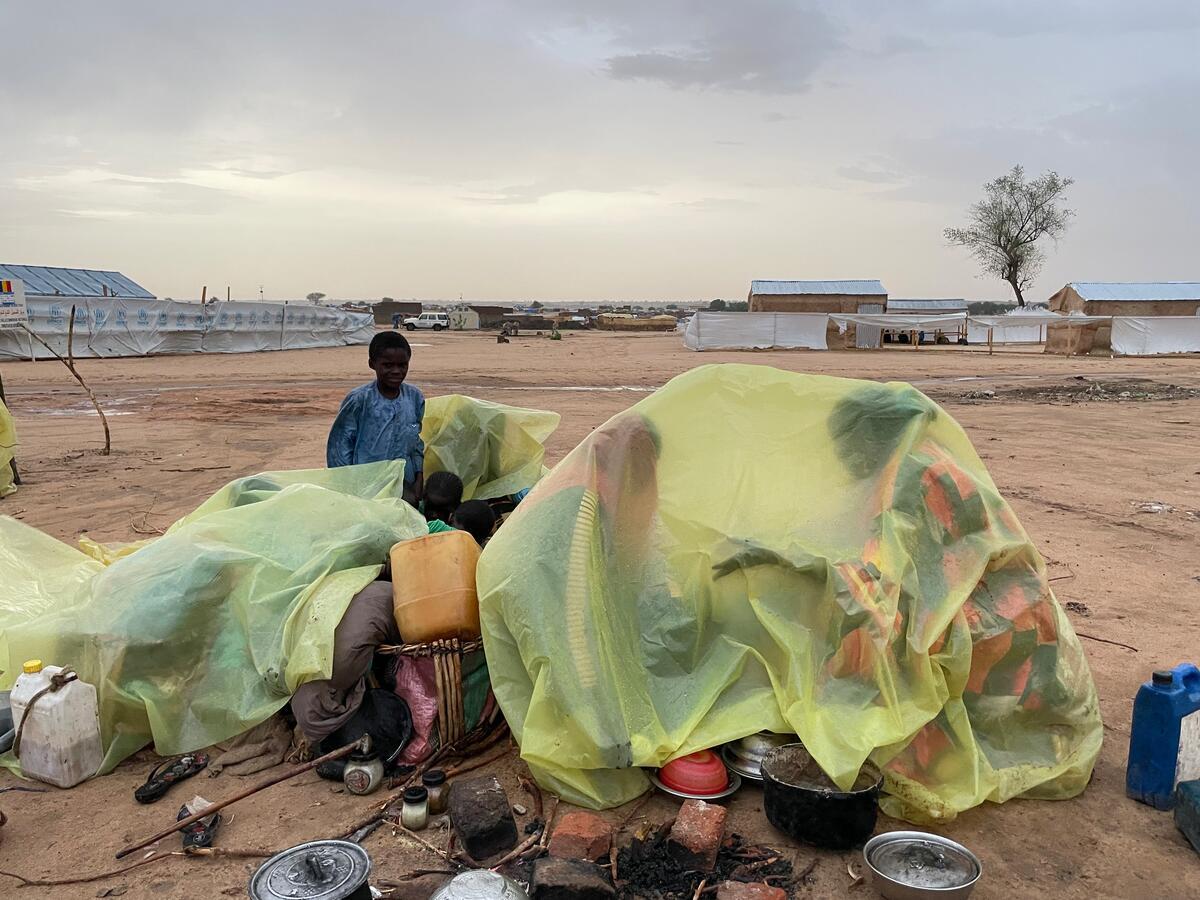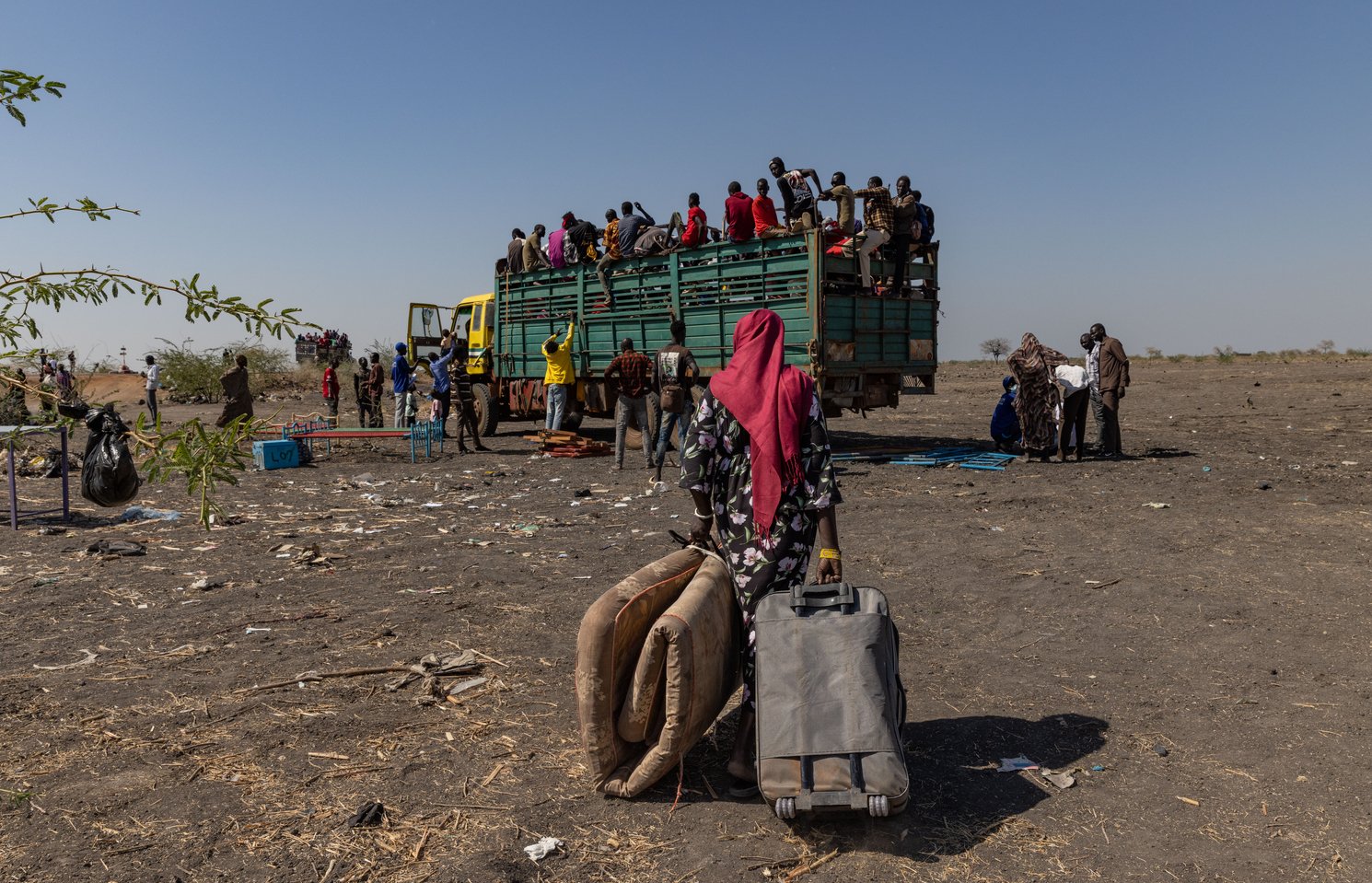'Good morning, Yaoundé': refugees take the mic
'Good morning, Yaoundé': refugees take the mic

Emmanuel Ambei, 30, feels emotional when he collects testimonies for his radio show. So many of the tales remind him of his own journey from Chad 18 years ago, when he was just a little boy. His father was accused of supporting rebels and nearly killed. The family fled to Cameroon and have never felt safe enough to return.
Emmanuel is part of a group of young Central African and Chadian refugees living in the Cameroonian capital of Yaoundé, who produce radio shows about other refugees living in the country. They are part of a programme supported by UNHCR, the UN Refugee Agency, that trains refugees in radio production and broadcasting.
The initiative was born of a simple idea: who better to talk about refugees than refugees themselves?
Many of the people in the current programme had often been approached by nongovernmental organizations and media to talk about the issues they faced as refugees. They decided it was time to narrate their own story. The International Council of French-speaking Radio and Television Organizations (CIRTEF) offered the training. Their initial 26-minute programme, which includes field reports and studio interviews, will air on the main Cameroon public radio station and the project will soon expand to other French-speaking African countries.
"We refugees are all connected."
Emmanuel said each story teaches him something new about his fellow refugees in Cameroon.
"I am a refugee living in an urban area,” Emmanuel said. “We refugees are all connected, but we have very different lifestyles. I clearly don't have the same problems as a refugee who lives in a camp. In the city, we have more opportunities in terms of education, healthcare and job opportunities.”
Cameroon hosts more than 400,000 refugees, the vast majority of whom are Central Africans, mostly settled in the east. The country is also home to some 100,000 Nigerians who have fled violence by jihadist groups.
In Gabo refugee camp in eastern Cameroon recently, Emmanuel worked alongside Levys Bangakpan and Mabel Coradim, also from Central Africa. They are all “urban refugees” living in Yaoundé. Their visit to the refugee camp was a first for them.
Emmanuel diligently captured ambient sounds: the excited cries of children, the haunting calls of street vendors, the bustle of the camp’s market. He and his team then recorded the often-shy voices of the refugees. As they walked around the camp, past the mud-brick houses, they learned that life in the camp is difficult, and work is scarce. Still, there was a welcoming feeling, and they were trailed by curious children.

On this particular day, they were reporting on a repatriation operation, which would return home 1,500 Central African refugees determined to go back to their land. The reporters would follow the convoys but first interviewed the chief of Gado, village Martin Sodea Azia, who had come to say good-bye to those leaving.
"We were a big family. It really hurts my heart to see them leave” said Azia. “We received them wholeheartedly. May they return and live in peace.”
When they arrived at the border post of Garoua Boulaï, between Cameroon and the the Central African Republic (CAR), Mabel and Levys could not help but step on their native land for a selfie. But they did not linger.
“I love my country, but setting foot again after seven years of exile, I have mixed feelings,” explained Levys. “When I think of going back, I live the trauma that caused me to flee all over again.”
Because of this ordeal, he does not think he will be ready to return home to CAR anytime soon.
"Of all the meetings we had and all the stories we covered, this was the one that touched me the most," said Mabel, who had not been back to CAR since fleeing its civil war and finding refuge in Yaoundé in 2003. The periodic flare-ups of violence in the country have prevented her and her family from feeling safe enough to return.
"It really makes me dream to see a refugee like me can succeed."
The team has covered stories around the country. During a reporting trip to Minawao camp, in the most northerly part of Cameroon bordering Lake Chad, the team followed refugees who were replanting forest destroyed by the impacts of climate change and deforestation.
In Douala, the economic capital, they met an old Cameroonian imam who has taken in hundreds of refugees and interviewed a young refugee teaching people in the community about COVID-19. They also spoke to a Congolese refugee who has become a successful entrepreneur.
"It really makes me dream to see that a refugee like me can succeed like that," Emmanuel said.
Telling other people’s stories has inspired the budding journalists, and at least one has found a calling.
"I first took the opportunity because I'm shy by nature and wanted to challenge myself," said Mabel. “Going to the camps, seeing the needs of my refugee brothers and sisters, made me start nurturing the [idea] of working in the humanitarian field.”
She is now completing a master’s degree at the International Relations Institute of Cameroon.
“When I finish by the end of 2021, I will pursue a career in humanitarian work," she said.

